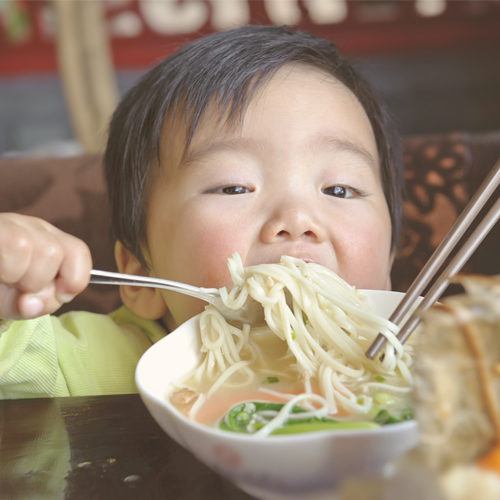What food is safe for your baby?

As a parent, you should be concerned about safety when feeding your baby.
Infants and young children under five years are particularly vulnerable to foodborne illnesses – their stomach is not producing adequate acid, and they have immature immune systems. Also, they are susceptible to choking since their pharyngeal and laryngeal muscles are not yet fully coordinated. So be mindful when feeding infants and young children.
Foods to avoid to prevent foodborne illnesses
Children under 6 months of age should only get breast milk or baby formula. And when it is time to introduce solid food, avoid the following foods:
- Raw and undercooked fish or shellfish
- Unpasteurized beverages and foods, including raw milk and unpasteurized juice and ciders
- Raw sprouts such as clover, alfalfa, and radish
- Raw or partially cooked eggs (to avoid salmonella poisoning)
- Raw or undercooked meat and poultry
- Honey for babies under 12 months (to avoid botulism)
Keeping food safe for your baby
To ensure that your baby has clean food to eat, try to follow these precautions:
- Avoid feeding your baby directly from a container as it may lead to contamination and food poisoning.
- If you have gastroenteritis, don’t prepare your baby’s food if possible – but breastfeeding is still safe.
- Wash your hands thoroughly before preparing food.
- All feeding tools, including bottles and cups, must be sterilized before use, particularly in the first three months.
- If you use a breast pump, follow the recommended hygiene protocols to make sure that it is clean and safe.
- Always check the expiration date on your child’s formula milk.
- Follow the instructions on the packaging when preparing and storing formula milk for your child.
- If you are preparing food in bulk, cool it quickly by putting it in the fridge, and refrain from keeping food longer than 3 days. Cover food that you bring outside with an ice pack to extend shelf life.
Foods that might cause choking
Some foods are generally not recommended because they can cause choking and aspiration, and young children are often at high risk of choking. Following foods can be choking hazards:
- Sticky foods: These include caramels, marshmallows, jelly beans, dried fruits, fruit leathers, taffy, chunky peanut butter, gum, and gummy candies.
- Small, hard foods: Examples include chips, pretzels, nuts, popcorn, seeds, whole kernels of corn and whole olives, whole cherry tomatoes, and chunks of raw vegetables.
- Slippery foods: Round foods (such as grapes, berries, and cherries), large pieces of meat and poultry, cough drops, and hard candies.
Precautions for preventing choking
Here are some precautions you can take to avoid choking:
- Keep a watchful eye when eating
- Provide finger foods that your baby can grasp and chew on
- Refrain from playing or running while eating
- Encourage your child to eat slowly and chew well
- Learn First Aids for babies such as Heimlich maneuver, and CPR



